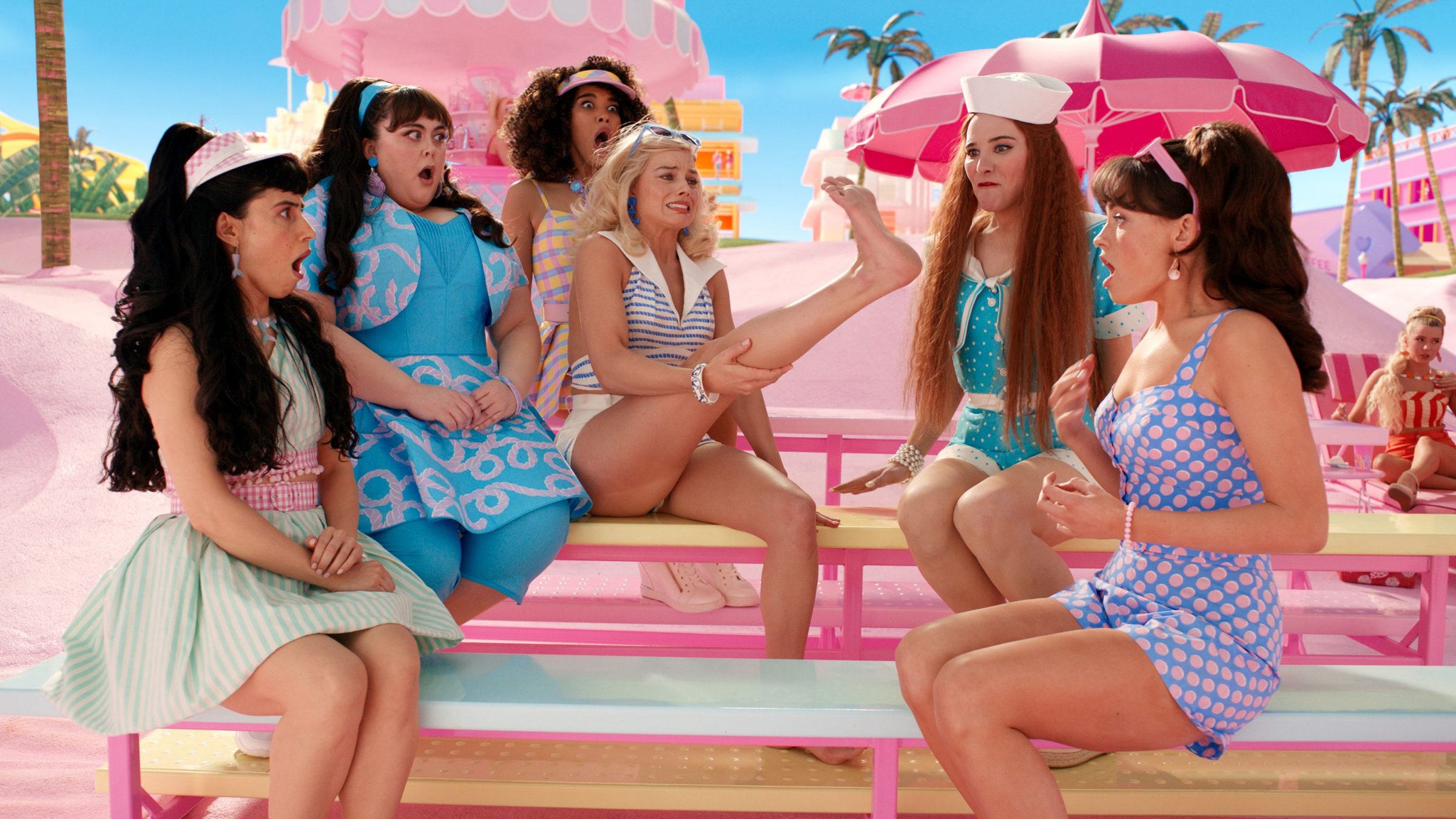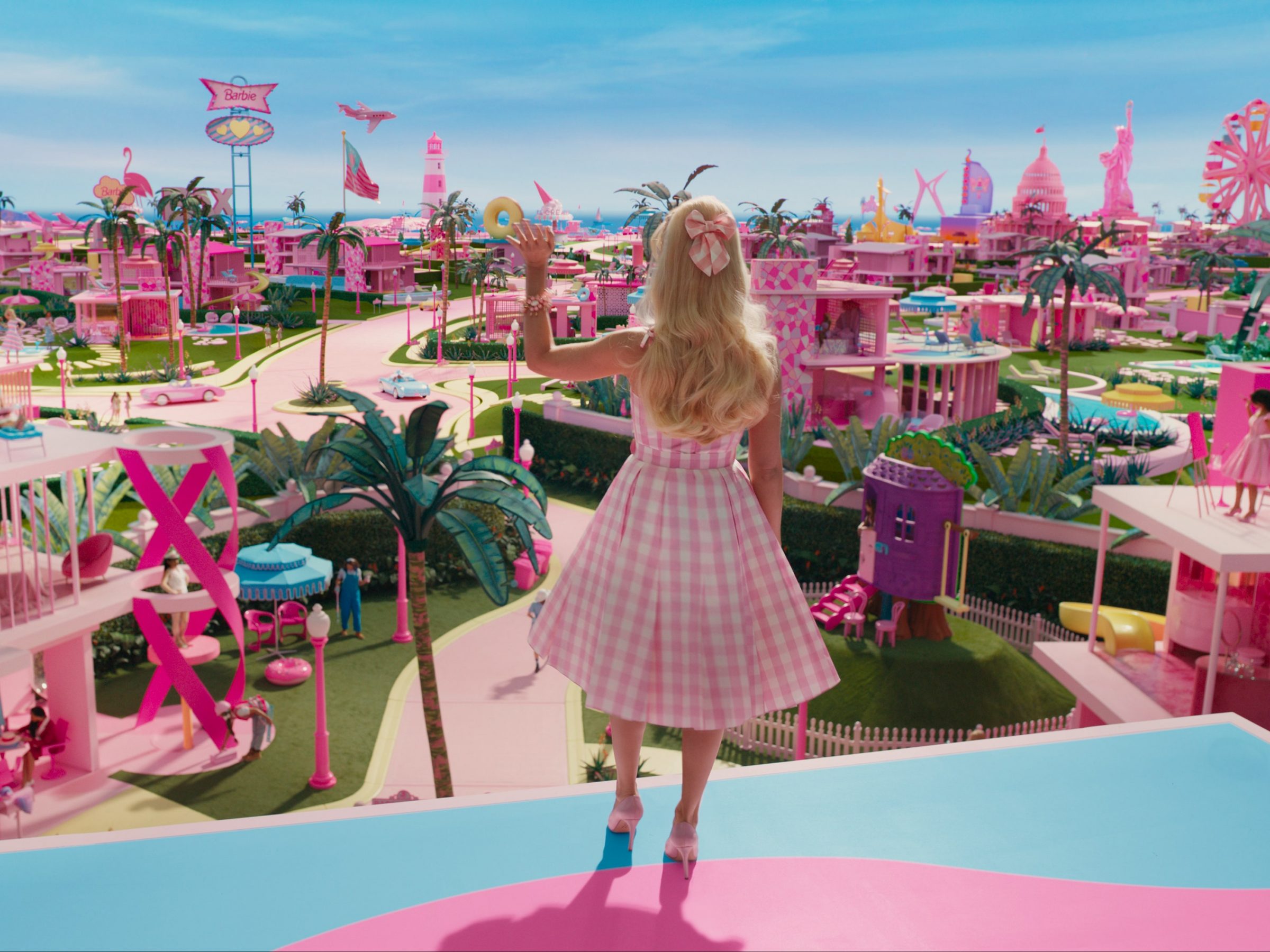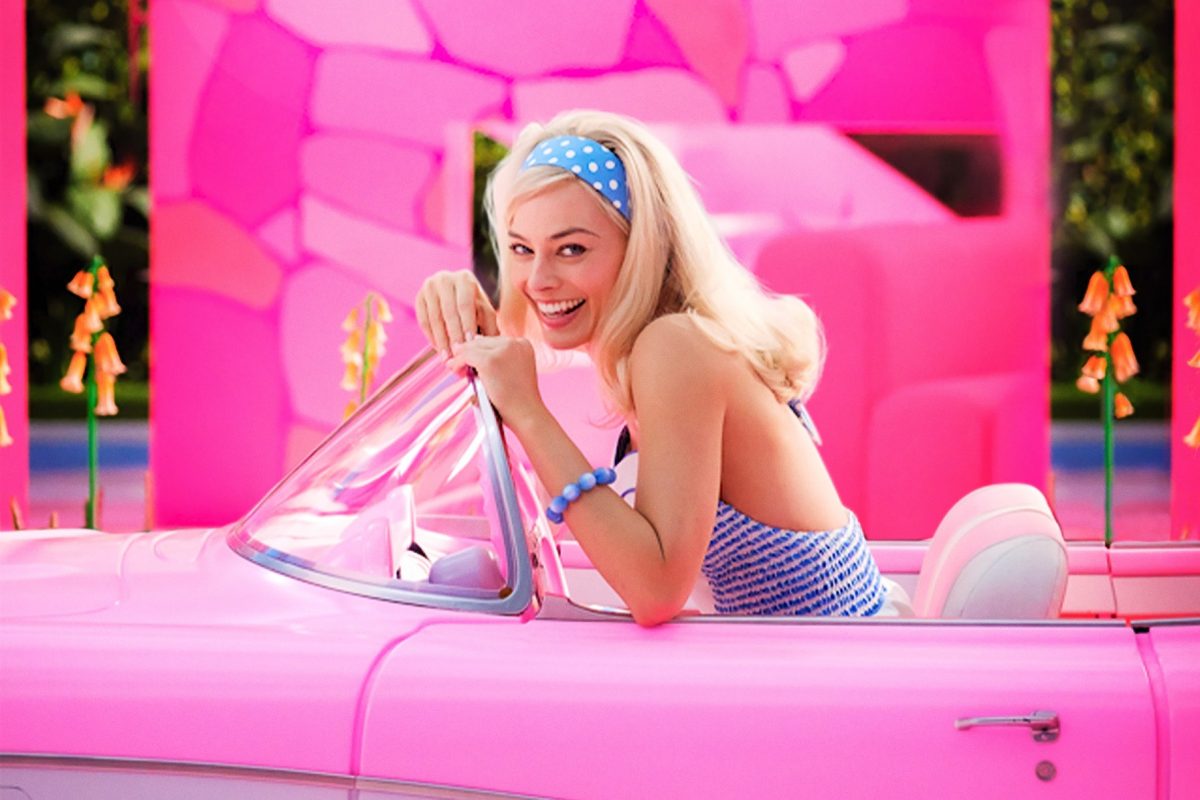When it was announced that a Barbie movie was in the works, it’s safe to say that one of the questions that crossed everyone’s mind was “Why?”
Barbie’s dream universe has covered everything from nutcrackers to mermaid lore, and it seemed like Barbara Millicent Roberts was past her prime. The Y2K aesthetic only made room for Bratz dolls, and the meme-ification of American Girl dolls transformed them from status symbols to internet mainstays. Meanwhile, the opinion of feminist scholars who had long criticized Barbie for the outrageous beauty standards she perpetuated had gone mainstream. Girls still love their dolls, but Barbie’s star has burned out.
My interest was piqued when I heard Greta Gerwig would be tasked with telling Barbie’s story. The plot has been kept tightly under wraps, with rumors ranging from a Wizard of Oz-esque storyline to something like The Truman Show. Those rumors were not entirely wrong, but Barbie exists as its own film.
From the beginning, it’s evident that the film is a meta-narrative, which adds to the satirical charm. Helen Mirren narrates Barbie’s zeitgeist origin story in a 2001 Space Odyssey-themed sequence, in which she explains that the Barbie doll was created for girls to aspire to something other than motherhood. Barbie is aware of her existence in the world, and aware of the impact that she has had on society as a trailblazing role model for career-minded women. As Mirren notes in her narration, Barbie has solved all the problems of feminism and equality – or at least, that’s the lore in Barbieland.
Margot Robbie stars as the Stereotypical Barbie. She lives in Barbieland with an endless array of Barbie variants, such as Doctor Barbie (Hari Nef), Writer Barbie (Alexandra Shipp) and President Barbie (Issa Rae), who preside over this matriarchal democracy.

Then we meet the Kens, who are just as varied as the Barbies, only less cool. Ryan Gosling’s iteration of Barbie’s companion lists “beach” as his profession. But it’s not easy being a Ken. Mirren explains that while Barbie has a great day every day, Ken has a great day only if Barbie looks at him.
Barbie’s perpetual string of great days takes a turn for the worse when she brings one of her nightly blowout parties/soundstage musical numbers to a record-scratch halt when she blurts out, “Do you ever think about dying?” The next morning, she wakes up with bad breath, falls out of her dream house, and discovers that her feet have gone flat. Realizing that something is wrong, she pays a visit to Weird Barbie (Kate McKinnon), who explains that the only way for Barbie to restore her perfect tiptoe and avoid cellulite is to trade in her heels for Birkenstocks and take a trip to the real world. Since Ken only exists as an ornamental addition to Barbie’s iconography, he joins her on the journey to reality, where they make discoveries that pose an existential threat to Barbieland’s women-run utopia.

The idea of a doll visiting the real world and learning to adjust to a life that’s not so fantastic was always in the cards for Barbie – the 2000 movie Life Size starring Tyra Banks walked so Robbie could run with Barbie. As she is catcalled by construction workers in Venice Beach, Barbie realizes misogyny did not end with Supreme Court Barbie. She suffers an existential crisis when she realizes that her very brand is determined by an all-male team led by Mr. Mattel (Will Ferrell.)
Gerwig uses Barbie to explore the nuances of feminism, but the film never feels too heavy or takes itself too seriously. It helps that Mattel isn’t afraid to laugh at itself, like the recurring joke where Midge (Emerald Fennell), a pregnant version of Barbie that was deeply unpopular with kids, is banished to Skipper’s Treehouse. Gerwig’s attention to detail and dedication to the source material not only satiates a longing for nostalgia, but also showcases her intentionality. Since no child ever made a doll take the stairs in her Dream House, these Barbies float through the air from bedroom to dream car. Gerwig makes that floaty feeling last.

